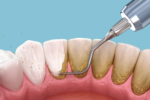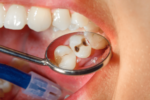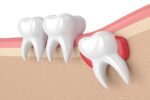Some people may occasionally feel anxious before a dentist appointment; in such a scenario, sedation will help you feel at ease. Our dentist in Edmonton utilizes sedatives to help their patients relax while receiving various dental treatments, from straightforward teeth cleanings to surgical operations. The best way to guarantee that patients have a calm, soothing dental session is through sedation dentistry.
Is Dental Sedation Safe?
Sedation dentistry is the practice of giving patients medicine to make them feel more at ease while they are undergoing dental care. It is a particularly successful technique for individuals who have significant dental phobias or anxieties, or for those undergoing treatments that may cause more pain than a safe local anesthetic dosage can totally alleviate.
Despite the allure of dental sedation, you might not be a good fit for all sedation methods. For instance, nitrous oxide sedation, which is the safest for many dental patients, might not be an issue for you. However, if you receive oral sedation or sleep dentistry, which can result in negative side effects, a problem could potentially develop.
What You Should Know Before Undergoing Sedation?
Make sure the dentist is qualified to provide the sort of sedation that will be given to you before your scheduled dental operation. To make sure you’re a good candidate, provide your dentist with your entire medical history along with your age. Do not be afraid to inquire about things like the FDA-recommended sedative dosage and what to anticipate during and after sedation. You will be required to sign a paper authorizing the sedation. Before filling out the form, make sure to read it well. Ask your dentist near you for extra information if you need clarification on any of the things mentioned.
Benefits of Undergoing Sedation
- Less pain: Dentist visits are frequently associated with suffering, however, sedation can actually help you feel less discomfort. This is especially useful for more unpleasant operations like having a tooth pulled out or having cavities fixed.
- Relaxation: The fact that sedation dentistry makes individuals feel more at ease is one of the key factors in people choosing it. Sedation can relieve your anxiety if you’ve previously had a negative dental experience or if you’re just naturally nervous about getting your teeth cleaned.
- Fewer appointments: Sedation makes it possible for you to unwind and experience less pain, making it possible to complete operations that ordinarily require numerous visits in only one.
Learn More About Sedation
The patient’s worry and anxiety are reduced with the use of medication during the sedation dentistry near you. Sedation dentistry is also referred to as “sleep dentistry.” While it’s true that some sedation dental procedures render patients asleep, other techniques keep them completely alert. “Sleep dentistry” uses general anesthetic during the entire dental operation.
The different stages of sedation dentistry are as follows:
- Mild sedation
- Moderate sedation
- Deep sedation
- General sedation
With general anesthesia, the patient is dormant and unresponsive throughout the entire dental operation. The procedure under deep sedation allows the patient, who is on the verge of consciousness, to be brought back to consciousness. The patient won’t recall much about the dental procedure while under moderate sedation. The patient is fully awake yet at peace and calm throughout the entire process, making minimal sedation the lowest level of sedation.
Don’t Neglect Your Oral Health
Your oral health requires routine dental treatment. You don’t have to put off getting complete dental care if the idea of dental work makes you nervous; sedation dentistry in Edmonton can help you be at ease throughout your procedure so you can keep your mouth healthy in the long run.
Get in touch with Belle Rive Dental Clinic if you’re considering this method of care.








